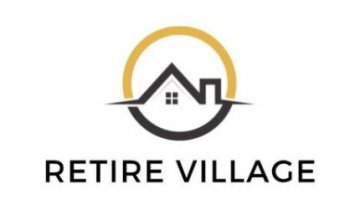Steve Kerby
Oregon Financial Group
When Planning, Don’t Forget These Often Overlooked Retirement Expenses
"There is a massive disconnect between how much money people think they'll need in retirement and their actual expenses once they no longer work.” Steve Kerby
Retirement marketing tends to present highly idealized visions of retirement as a sort of heaven. In retirement, there is no work, no nasty bosses, endless sunshine, road trips, and enough time to pursue our favorite hobbies.
Unfortunately, reality often arrives in the form of overlooked retirement expenses, threatening to prevent you from having anything close to your ideal lifestyle when you stop working.
Most people are very poor at estimating things, especially how much things will cost once they stop getting a regular paycheck. There tends to be a profound disconnect between what people believe they need to save to attain their retirement lifestyle and their actual expenses.
A recent bank survey underscored this kind of magical thinking, finding that over 67% of respondents believed they would need less than $100,000 for healthcare expenses when they retired. Yet an average couple in retirement will need nearly three times that amount, over $295,000!
When planning your eventual exit from the workplace, you must be sure to include realistic assessments of how your retirement cash will go.
Here are a few of the most commonly overlooked and underestimated retirement expenses.
Taxes will probably go up in retirement. Since your income will probably be less in retirement than it was when you worked, you will naturally pay less in tax, right? Not necessarily because historically, taxes almost always go up. They may even rise to a level that could be as high as it was when you were still working.
If your retirement plan includes relocating to another state or country, you will also need to get a thorough evaluation of potential tax implications. Currently, there are only 12 states in the U.S. that do not require retirees to pay taxes on 401(k), IRA, or pension income. Some states tax retiree income more heavily than you might believe. Be sure your retirement blueprint factors in enough to account for tax increases.
Medicare will not cover every expense. Despite media efforts to correct the misconception that Medicare takes care of all retirees' healthcare needs, many people continue to believe that. Unfortunately, thinking that Medicare offers 100% coverage causes seniors to not factor in the money they'll need to pay for out-of-pocket expenses and supplemental coverage. Plus, if you have to retire before age 65, you may need to pay for private insurance coverage.
Medicare costs can escalate because Medicare is not free. Most retirees will pay a monthly premium based on income. Medicare does not cover deductibles and co-pays.
Medicare also does not cover dental expenses, vision and eyeglasses, hearing aids, or prescriptions unless you purchase Part D coverage. So, it's likely you will need supplemental coverage, which comes with monthly premiums. Unfortunately, potential expenses such as these are often omitted when planning.
Long-term nursing home care is also a concern. If you are 65 or older, you have a 60% chance of needing long-term care services in your remaining years. Also, the costs for long-term care services are rising nearly 4% every year.
And of course, the silent killer of retirement times, inflation. The CPI (Consumer Price Index) recently announced an annual rate of inflation for our current year at 4.2%. Also, the CPI does not include fuel and food in its interest calculations. Are your retirement investments earning 4.2%? If not, it could be time to reconsider your asset classes and make sure you have installed some level of Safe Money plan. Exposure to market risk may not the best idea if most assets are needed for retirement income.
Bottom line. Many factors affect retirement success, including planning that fails to include realistic estimates of costs you are bound to encounter with age. Wise planning pulls your head out of the sand and helps you avoid making mistakes that could lead to running out of money when you retire. It's essential for you to find and build a relationship with a conscientious advisor who leaves no stone unturned. You will benefit from having a financial expert who isn't afraid to tell you the truth about your money.

Steve Kerby
Oregon Financial Group
5555 SW 196th Ave.
Aloha, Oregon 97078
kerbyofg@aol.com
(503) 936-3535


Looking For Answers?
Download our Safe Money Guide and learn more about safe retirement options that can help you achieve your retirement goals safely - FREE!

